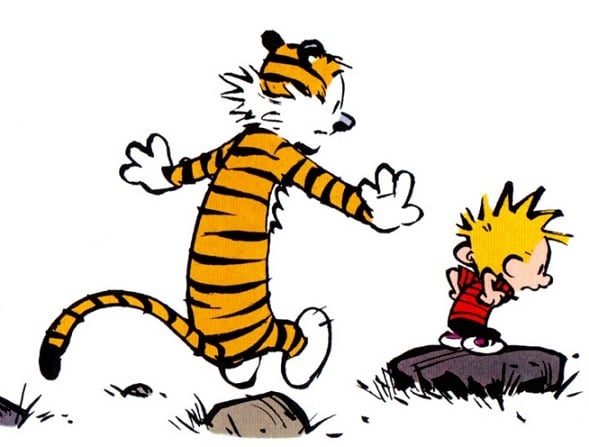- cross-posted to:
- science@lemmy.ml
- cross-posted to:
- science@lemmy.ml
Emilia Jarochowska joined Twitter in 2016 in the hope that it might help to enhance her career. She was finishing her PhD in palaeontology at the time, and felt that the platform would help her to connect with colleagues and find job opportunities. But that was, she says, before the platform became a “sea of bad trolls”.
Last December, after much consideration and several experiences of fighting misinformation on climate change and COVID-19, Jarochowska closed her account, feeling that her reputation could be at risk if she kept using the platform. She felt that Twitter was promoting provocative discourse over facts and encouraging a type of controversy that “is not what scientists should be associated with”, she says.
A survey conducted by Nature suggests that Jarochowska, now at Utrecht University in the Netherlands, is far from alone in curtailing her use of the platform. Since entrepreneur Elon Musk took control in October 2022, he has made a series of largely unpopular changes to Twitter, including cutting down on content moderation; ditching its ‘blue-check’ verification system in favour of one that grants paying members additional clout and privileges; charging money for access to data for research; limiting the number of tweets users can see; and abruptly changing the platform’s name and familiar logo to simply ‘X’. His management has left scientists reconsidering the value of X, and many seem to be leaving.
To get a better sense of how researchers are currently interacting with the site formerly known as Twitter, Nature reached out to more than 170,000 scientists who were, or still are, users; nearly 9,200 responded. More than half reported that they have reduced the time they spend on the platform in the past six months and just under 7% have stopped using it altogether. Roughly 46% have joined other social-media platforms, such as Mastodon, Bluesky, Threads and TikTok.
With this migration has come widespread uncertainty. Many academics worry that the changing social-media landscape is undoing some of the advances that Twitter helped to facilitate in diversity, equity and inclusion for academia.
For example, Cristina Dorador, a microbial ecologist at the University of Antofagasta in Chile, says that Twitter helped her promote her research to her country and the world. Without a social-media platform that is as universal as Twitter, she worries that she and others won’t have a lot of options to make their work more visible, and many researchers don’t have the resources to keep up with the changes that X is making. “I don’t see a Latin American researcher paying to verify their account so people read what they’re publishing,” she says.
For now, it’s hard to predict what will become of X, but the changes are creating angst in the scientific community and challenging scientists and the academic establishment to redefine how they share science and build community. “If everybody disappears from Twitter, if it goes belly up or just becomes completely useless, I think that’s going to limit the reach of some of my work,” says Stuart Pearson, a coastal engineer at Delft University of Technology in the Netherlands. Although he has started to see people from his network leave or become less active, he’s not ready to let go himself, because it took him years to gather followers and build his network. “I can’t say I’m too eager to repeat that again.” Why are they leaving?
Nature obtained the e-mail addresses of thousands of scientists who were identified through a social-media research project as having tweeted about papers on which they were a corresponding author1. The survey from Nature asked whether people had changed their use of Twitter in the past six months and why. The reasons respondents gave varied, but many of those who had markedly reduced or stopped their activity on X mentioned Musk’s management of the platform. Many said that they had noticed an uptick in the amount of fake accounts, trolls and hate speech on the platform.
Žiga Malek, an environmental scientist at the Free University of Amsterdam, mentioned in the survey that he had started seeing a lot of “strange” political far-right accounts espousing science denialism and racism in his feed. He has to block them constantly. “Twitter has always been not so nice let’s say, but it is a mess right now,” he said.
Researchers have found that, contrary to such public claims from Musk, hate speech increased after he took over2. Musk has threatened to sue at least one group studying these trends.
A lot of experts and specialists are leaving the platform, says Timothy Caulfield, a law scholar and science communicator at the University of Alberta in Edmonton, Canada. “If that happens, are we just making room for a massive echo chamber that can spread misinformation in a way that is very harmful to society?”
X did not respond to Nature’s request for comments.
Where are they going?
The most popular alternative social-media site that respondents mentioned opening accounts with was the free, open-source software platform Mastodon. Compared with X, Mastodon allows for better community moderation, says Rodrigo Costas, an information scientist at the Centre for Science and Technology Studies at Leiden University in the Netherlands, who has been studying scientists’ use of Twitter since 2011. In February, he and Jonathan Dudek, a communications researcher also at the Centre for Science and Technology Studies, examined the Twitter profile information of 400,000 researchers — obtained for a previous research project3 — to see who was broadcasting their movement to other platforms. Roughly 3% of the profiles mention a Mastodon account, according to the researchers’ preliminary analysis.
Although it has been around for some seven years, Mastodon has a much smaller user base than do other social-media platforms. In Nature’s survey, LinkedIn was the second most popular place for respondents to open new accounts, and Instagram, owned by Meta, was third. Threads, also owned by Meta and pitched as an alternative to X, had started just a few days before the survey was launched. It reportedly attracted 100 million users in its first five days, and was the fourth-most-popular platform among survey respondents, with about 1,000 people saying that they had joined (See ‘Signs of dissatisfaction’). Signs of dissatisfaction: charts that show the results of a survey from July 2023 on how scientists’ use of Twitter has changed.
The proliferation of platforms has created a fragmented landscape for science communication and community, says Inger Mewburn, an education and technology researcher at the Australian National University in Canberra. One of the advantages of Twitter was that it was the main platform where researchers could go to find specific information. “People would just go to that hashtag and they’d see everyone who was talking about a very particular interest,” she says. Now, researchers need to hop from application to application following specific communities and individuals. “It’s just hard to know where people are hanging out,” Mewburn says.
Some researchers are trying to stick around. Malek says that, for the time being, he will continue using X to promote his work; he published a paper on land degradation in Asia in July and he’s working on another one about livestock grazing in Europe that he also hopes to promote through X. But a lot of the people that he follows have left and he’s not sure how much longer he will continue. What is being lost?
There is still no consensus on whether X will survive its current chaotic management. In July, Musk announced the company is running on a “negative cash flow” because it has lost 50% of its advertisement revenue. And a lawsuit against the company is claiming it owes US$500 million in severance benefits to former employees.
Many scientists lament what is being lost in the process.
One of the benefits of Twitter was how it created a sense of community for scientists, particularly for those from under-represented groups. It gave a voice to female researchers about issues such as harassment and unequal pay, and served as an organizing point for scientists of colour to speak out against inequity. Scientists could discuss suspicions of research fraud, often anonymously, and because many journalists used the platform, people who might otherwise have been ignored sometimes got results. Dorador says that Twitter helped to raise awareness and accountability for concepts such as scientific colonialism and gender and sexual diversity.
The dynamics of networks on Twitter were also of great interest to researchers. Unlike many other social networks, Twitter had, until recently, an open application programming interface (API) that allowed scientists to explore how people interacted with the platform and with one another, leading to studies on how users were discussing climate change, how people with autism were using it to be heard and the patterns of account suspensions relating to Russia’s invasion of Ukraine, among other things.
In February, the platform announced that it would close the free access to its API, although the change didn’t come into effect until the end of June. Since then, research on misinformation, disaster responses and social dynamics on the Internet has been halted or hampered. Costas and Dudek, for example, don’t have free access to new data to further their research on how users engage with science and create communities. They now have to rely on information from previous analyses. “There’s still so many things that I would like to do,” Dudek says.
He and Costas also worry that these changes will halt their collaborations with other scientists in the field. “The way academics could access Twitter also created a nice framework for sharing data,” Costas says. Now, someone who pays to access X data will not be able to share it with others to do complementary research or replicate findings unless the other team also pays, he says.
What happens next?
Whether X will manage to regain its attractiveness to scientists, or whether some other social-media platform will grow into its space, is unclear. Mewburn doesn’t see the loss of Twitter as a fatal blow to the scientific enterprise. “I don’t think science has become overly dependent on social media,” she says. Scientists might find it more difficult to network and build their careers, especially if they don’t have the money to go to conferences, but she expects that people will come up with creative new ideas.
Jarochowska suggests that scientists focus on organizing webinars, building networks to share data and methods, and finding original ways to stand out. In some ways, she’s glad to have put Twitter behind her. “If you appear with your scientific contents between videos of cats,” she says, “it’s not a particularly good medium for promoting yourself professionally, anyway”.
Mark Carrigan, a digital sociologist at the Manchester Institute for Education, UK, argues that the idea that Twitter helped democratize academia “was a bit simplistic” because social media created a space where academic celebrities thrived. Even when it helped to diversify science, he says, it did so through the reinforcement of the same kinds of hierarchy. “Rewards flow to those who are known, valued and heard while those who are unknown, unvalued and unheard struggle to increase their standing,” he wrote in a 2019 article.
He now emphasizes that conventional networking organizations should be eyeing this as an opportunity. Professional associations, societies, study groups, research networks, research centres and laboratories have a responsibility to curate and support their own networks, he says. “I’m 99% convinced that Twitter, as we know it, is dead, and the sooner academics accept that, the better, in terms of finding solutions to these problems.”
Nature 620, 482-484 (2023)
If you’re still on Twitter, you’re part of the problem.
If you’re still on Xitter, you’re part of the problem.
why is this downVoted?
deleted by creator
I wouldn’t even go so far to call Twitter a mistake. But acknowledging that it turned into something you no longer want to support should be even easier.
Musk’s bootlickers, I suppose.
People don’t like being criticized or asked to change
“His management has left scientists reconsidering the value of X” is a funny line
I didn’t even catch that. It’s great! Thanks for pointing it out!
The quality has just been too variable lately.
I’m just going to go out on a limb and say, maybe it shouldn’t be possible for one person to have enough wealth to singlehandedly buy and destroy important social institutions.
Also, maybe smart people shouldn’t be putting all their eggs into one privately owned basket.
Also, maybe smart people shouldn’t be putting all their eggs into one privately owned basket.
I yelled this from the mountain top when everyone was moving their businesses off their own websites and onto Facebook, Twitter, and YouTube, but I was the minority. Why you would put the fate of your company, or hell, your government, into the hands of a mega-corp that is run by a sociopathic megalomaniac is beyond me.
deleted by creator
TBF Facebook and Twitter etc were profitable platforms for a lot of businesses for a while. They obviously weren’t going to last forever though so it would have been short-sighted not to plan for them dying off.
Woah now hold on just a second, that almost sounds like you’re criticising our perfect system of capitalism, in which a single person can and will accumulate enough wealth and power to buy and control hugely important things, and destroy them if they choose to. That’s like, the whole point of capitalism, to transfer as much wealth and power into as few hands as possible, regardless of any silly moral issues.
Sure, we could nationalise such important services for the good of the planet, like the police, fire brigade, water, electricity, healthcare, road maintenance, public transport, etc, but what are we, commies? 😮
Yes! The sale should have never been allowed and I really wonder if the whole “made a big offer that he tried to back out of but was forced to follow through on” was just a big play put on by Elon and the regulators to get people to feel good about the sale going through rather than being blocked like it should have.
It probably was one of the best and simplest tools for the job.
Worth remembering that Twitter’s problems didn’t start with Musk’s acquisition. He just redirected the city sewers into what was already a cesspool. Then took a piss in it for good measure.
I don’t know about that. Twitter seemed like a pretty stable platform before the acquisition, not a platform on the decline. Lots of problems, but now it’s a whole different level.
I always cringe at this argument for tech companies. “Ohh, but they aren’t/weren’t profitable!”
That is by design. Any money that comes in, they double, triple invest in growth with some nebulous end goal that gets continuously kicked down the road to keep growing revenue year after year.
It’s their business model to not be profitable.
They don’t need to grow at break neck speeds. They can reduce spending and grow slowly at sustainable speeds if they choose. But they want to corner the domestic market, then then international market, then expand into adjacent markets, etc etc until they implode.
Same argument was made for ride share corporations during the gig worker reform initiatives. “Woe is Uber, they don’t make money! They can’t afford to give drivers benefits, or a minimum wage if rides are slow!”
No, they could have, if they didn’t decide to throw mountains of cash on driverless R&D, international expansion, lobbying to kill taxi laws, subsidized ride rates in new markets, etc.
Same as Twitter paying celebrities to use their platform, news stations to adopt and push their platform, etc etc.
I wasn’t talking about Twitter’s profitability or lack thereof. I meant it was a breeding ground for trolls, brigading, bullying, and disinformation long before Musk took over. Musk made it worse, but it’s funny how some people remember pre-Musk Twitter as this bastion of integrity and civil discourse.
I don’t think I have been in a single social media platform that couldn’t be described in such a way. Having come from reddit, that place was described exactly like that. Facebook is also infamous for disinformation. Social media has a lot of widespread problems, but people are way too quick to dismiss their merits.
But yes, Elon Musk made it worse. Now any asshole with $8 can stir up shit at the top of every discussion, getting in the way of the people trying to contribute or have fun. It’s noticeably, significantly worse now.
I left months ago and have been doing my science communication on Mastodon since then. Sure, it sucks having to start over on a new platform, but I had already been doing that since leaving Facebook anyways.
Roughly 46% have joined other social-media platforms, such as Mastodon, Bluesky, Threads and TikTok.
Huh?
With Bluesky, ultimately you’re still subject to Musk’s whims [see edit]. As for TikTok, all I can say is ”seriously?!?”
Edit: I was wrong about this. Sorry!
TikTok
What scientist would not want to promote their latest research while wearing a CGI-generated cat head and doing interpretative dance to a base heavy riff by a band autotuned to sound like robotic pre-pubescent Japanese girls?
VTuber/utaite Delutaya does actually really like space, so maybe she can…
BlueSky is completely separate from Twitter. And as for TikTok, a social media scientist’s concerns aren’t really for their own personal privacy or the integrity of the web, but for reaching the largest audience they can.
Love it or hate it, TikTok is one of the largest audiences out there, period.
While I know they’re separate companies, I had thought that Twitter posts could show up on BlueSky. Therefore, Musk could turn off compatibility at any time, which is where the “whims” bit came in.
Is that inaccurate? Am I remembering wrong? I’d appreciate any correction if I’m saying something that isn’t true.
Yeah that’s wrong, twitter posts don’t show up in Bluesky at all. Completely separate network
Okay. Whoops. Thanks!
I’ve seen a handful switching to Substack as well. I’ve been experimenting with that platform lately and I like the post editor, lots of tools but not overly bloated, it’s pretty good. My only complaint so far has been that a lot of History/Academic Substacks seem to be pushing for the paid tier and so hide a lot of their posts behind a paywall Patreon style. Because of that Mastodon has been my favorite since the Twitter exodus.
When my partner shows me their feed on tiktok, we’ve run into quite a few folks trying to do community outreach through it. Can’t say I’m a big fan of the app, but given how popular it is, I’m glad there are scientists who are trying to put out some decent information on it.
wrt TikTok I assume the poll just asked what other platforms you are on, not if you are posting career related things on the platform. Most grad students are in their 20s and probably use TikTok for entertainment.
Okay. That’s a sensible explanation. Thanks!
I was wondering why the hell a researcher would use a video platform!
There are some really good scientists using TikTok to spread better science literacy, which is great. But obviously they aren’t presenting high level academic research data, it’s not suited to that at all.
His management has left scientists reconsidering the value of X
Ayyy
Elon Musk took it over. If you have half a brain, and understand the field he’s talking about, you would have closed your account the moment he was handed the keys. How anyone ever thought ‘hey wait, maybe?’ is absolutely beyond me. It was the titanic. Too slow to steer but ample time to reflect on the matter.
And Elon steered away. Killed the brand. Polarized the community. Gutted the technology that powers it. And drove away any semblance of order and most importantly, ad revenue. Top notch business model, gotta say. Very. Novel.
Imagine the tenacity it takes to turn a $44 billion dollar company into a $12 billion dollar one in under one year.
Can confirm. The moment he was handed the keys I closed my account.
Science focused instances of Mastodon were always superior anyway. Generally if you’re in a profession and looking to have professional focused discussion you want moderation that includes members of your profession. That’s why Reddit medicine and nursing communities were good.
Great news!
Sounds like the removal of verifications was a big cause of this. Now anyone can post anything and have the same weight as a verified professional. Musk’s buyout of twitter was nothing more than a billionaire (backed by the Saudi government) launching an attack on the truth itself.
Are there any academic focused lemmy instances? I’d love a community that requires proof of a degree to join (could still allow users from other instances to comment and participate) and only has science focused communities.
I’m curious about this too. I would love to lurk in some science communities here.
I do know there’s a lot of academics on Mastodon. Mastodon is way more fun than the Twitter ever was, because Mastodon let’s me follow scientists and doesn’t bury their posts.
mander.xyz
Just another instance full of conservatives
And how exactly would you have proof of degree? Who is going to have records sent from their university to this weird social media site?
I’d love a community that requires proof of a degree to join
Gross.
Why? What’s nice about lemmy is you can have special purpose instances. It’s no different than having an academic email address. You can still participate on an instance without making an account.
To avoid a similar situation in the future, Mastodon is a good choice. They can migrate their account if an instance goes wrong.
Others are more centralized if not totally centralized. It will repeat sooner or later on them.
Article doesn’t need to explain why, other then because it’s a toxic shit hole that’s crashing and burning.
I can bet some of them are researchers that use tweet datasets to conduct various research. After the API price changes its literally too expensive to generate datasets.
deleted by creator















